AI adopters should be proactive in implementing certain measures if they want to gain or maintain an advantage over their industry peers as the disruptive technology becomes mainstream, according to global accounting firm Deloitte.
In the 3rd edition of its State of AI in the Enterprise report, Deloitte says there are three things that both current and future adopters can do.
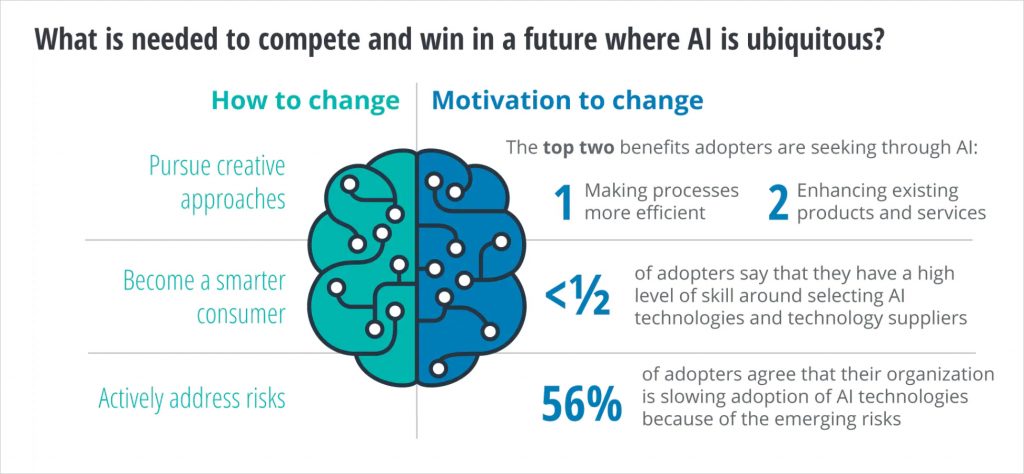
1- Pursue Creative Approaches
Deloitte’s analysis—which is based on a survey of 2,737 IT and line-of-business executives from around the world—found that many AI adopters are focused more on improving what they have than on creating something new.
Making processes more efficient and enhancing existing products and services were the top two benefits that the respondents were seeking from AI technologies.
Read more: COVID-19: A Pivotal Moment for Future of AI
“We found that companies are still using AI technologies mostly in IT- and cybersecurity-related functions. Forty-seven percent of respondents indicated that IT was one of the top two functions for which AI was primarily used,” the accounting firm wrote.

As major functions for AI applications, IT was followed by cybersecurity, production and manufacturing, and engineering and product development. This is while marketing, human resources, legal, and procurement ranked at the bottom of the list.
According to the report, businesses will soon need to use AI to differentiate themselves by going beyond using the technology to just improve efficiency and automation.
They will need to use the technology to differentiate themselves and can do that by taking inspiration from inventive use cases to come up with solutions that are both useful and novel.
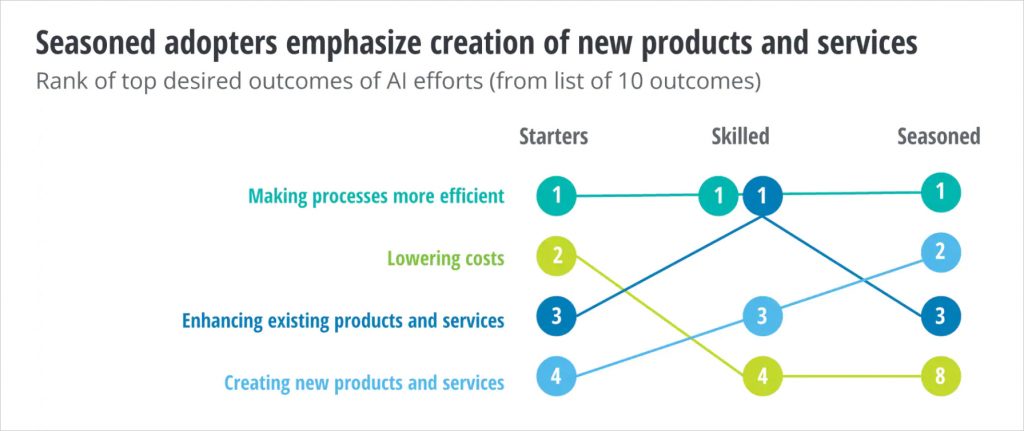
Push boundaries. Businesses should try to pursue a more diverse set of projects that could help enhance multiple business functions across the enterprise.
Create the new. A great area of opportunity for businesses. is developing new AI-powered products and services that can solve problems that humans can’t.
Expand the circle. In addition to the IT department, employees in other sections should become involved in AI efforts. New vendors, data sources, tools, techniques, and partnerships can be instrumental in achieving this goal.
2- Become a Smarter Consumer
The survey showed that AI adopters tend to buy their capabilities rather than build them.
“About 50 percent are buying more than they build, and another 30 percent use an even blend of buying and building from scratch. Seasoned (53 percent) and Skilled (51 percent) adopters are more likely than Starters (44 percent) to buy the AI systems they need.”

According to Deloitte, this suggests that many organizations prefer to experience a period of internal learning and experimentation before deciding on what is necessary.
“AI adopters view ‘being a smart consumer’ as critical to boosting competitive advantage. When asked to select the top initiative for increasing their competitive advantage from AI, adopters picked ‘modernizing our data infrastructure for AI’ as their top choice, closely followed by ‘gaining access to the newest and best AI technologies’.”
The findings of the survey show that less than half of adopters (47 percent) claim to possess a high level of skill for selecting AI technologies and technology suppliers.
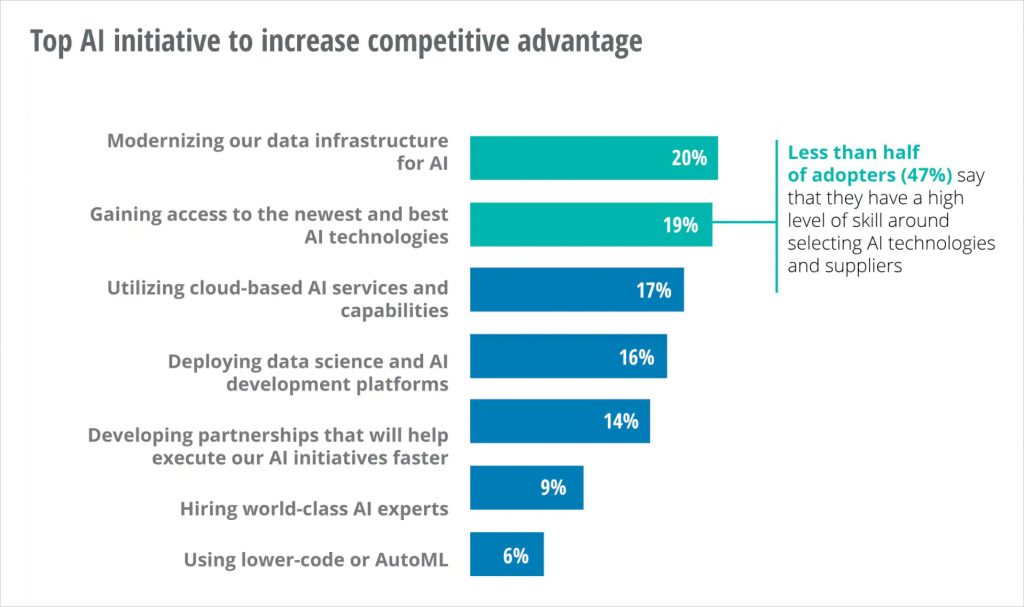
As more partners and vendors are offering their services, Deloitte says organizations should become savvier and choose the best-equipped ones to gain access to the latest and greatest technologies.
Leverage a diverse team. Both technical and business experts should be included in selecting AI technologies and suppliers as it is important to have a broad perspective from developers, integrators, end-users, and business owners.
Take a centralized approach. Businesses are advised to coordinate experiments, implementations, selection of AI technologies, and vendors across the enterprise as it helps avoid duplication of effort, competing methods, and multiple vendors.
The use of working groups, dedicated leaders, or communities of practice should be considered.
Focus on integrating and scaling. It should be made sure that vendors and partners can help the business integrate AI solutions into its broader IT infrastructure. It should also be verified that solutions can grow with the needs of the enterprise.
Read more: AI Replacing Teachers Will Have Dire Consequences
3- Actively Address Risks
Deloitte says adopters face reservations as well despite strong enthusiasm for their AI efforts.
“In fact, they rank managing AI-related risks as the top challenge for their AI initiatives, tied with persistent difficulties of data management and integrating AI into their company’s processes.”
Additionally, the survey’s findings show that a troubling preparedness gap exists for adopters across a wide range of these potential operational, strategic, and ethical risks.
“More than half of adopters report ‘major’ or ‘extreme’ concerns about these potential risks for their AI initiatives, while only four in 10 adopters rate their organization as ‘fully prepared’ to address them.”
According to the survey, 56 percent agree that their organization is slowing the adoption of AI due to the emerging risks.
“The same proportion believes that negative public perceptions will slow or stop the adoption of some AI technologies,” reads the report.
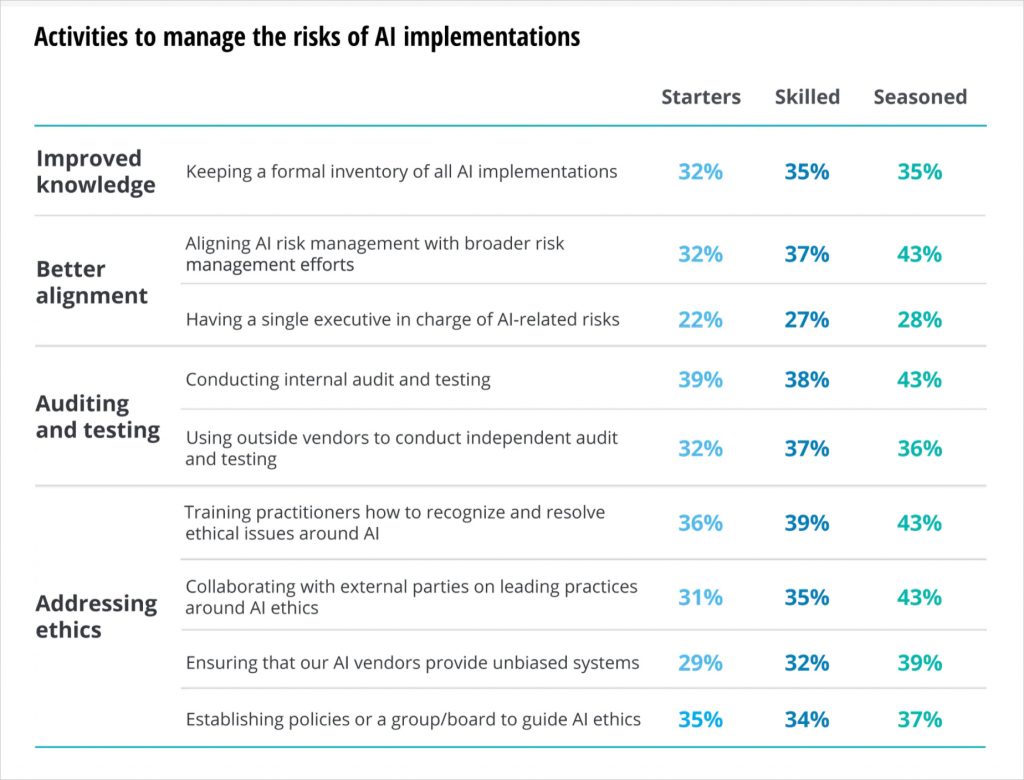
Deloitte says businesses should develop a set of principles and processes to manage potential AI risks if they want to build trust within their business and with customers and partners.
Align risk-related efforts. As many of the risks associated with AI are not unique, it is important to integrate AI-related risk management with broader risk efforts. An AI specialist can help with training and coordination of efforts in this regard.
Challenge your vendors. Organizations should make sure that the AI solutions used are aligned with their ethical principles.
Monitor regulatory efforts. Businesses need to ensure that legal, risk, compliance, and IT leaders are informed of the latest laws and policies regarding AI technologies.
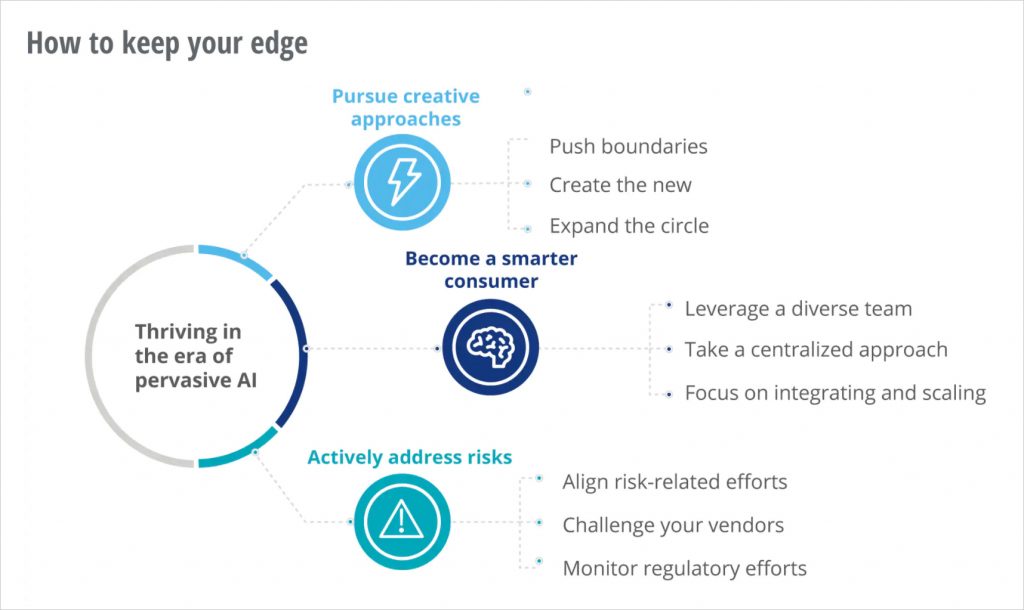
Deloitte states in its report that AI’s “early adopter” phase is apparently ending and the market is now heading into the “early majority” chapter of this maturing set of technologies.
This is reflected in the forecasts of global market intelligence firm IDC, which predicts that spending on AI technologies will grow to $97.9 billion in 2023—more than two and a half times the spending level of 2019.







